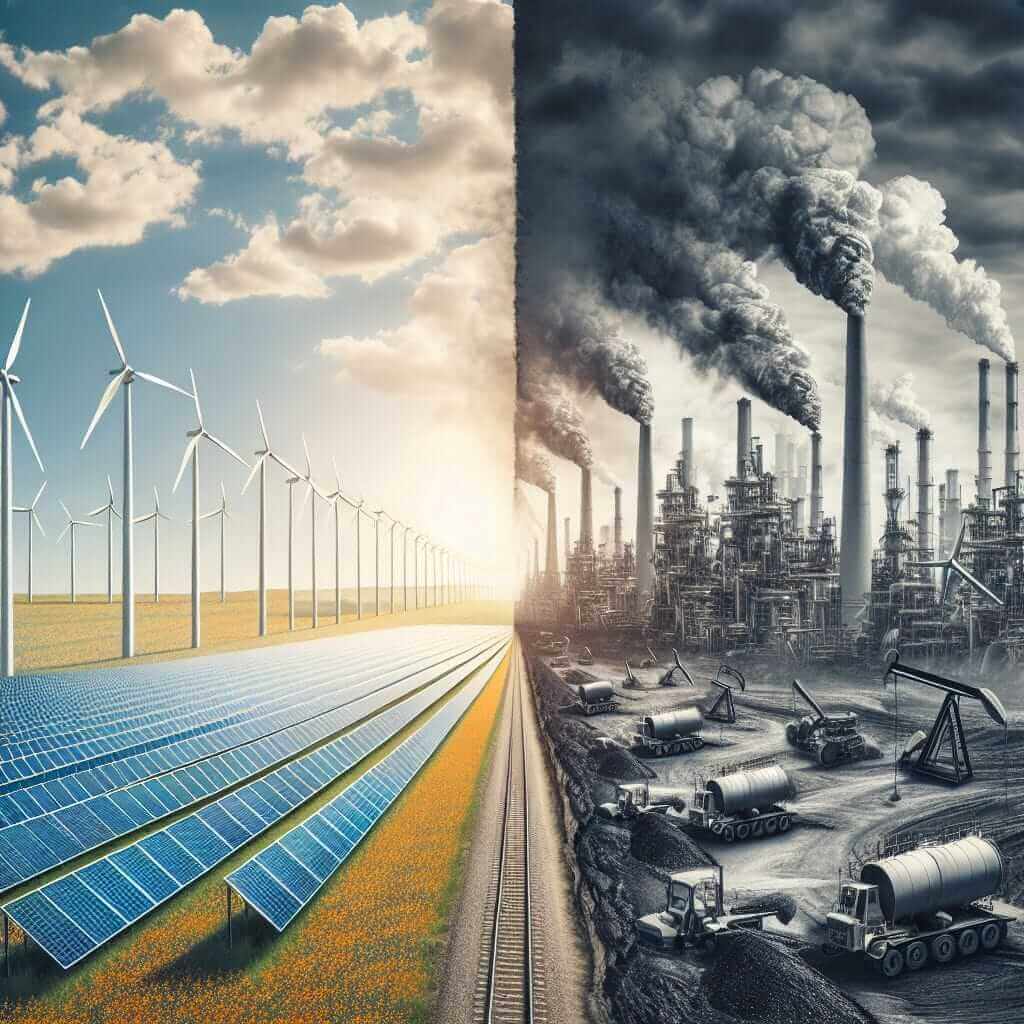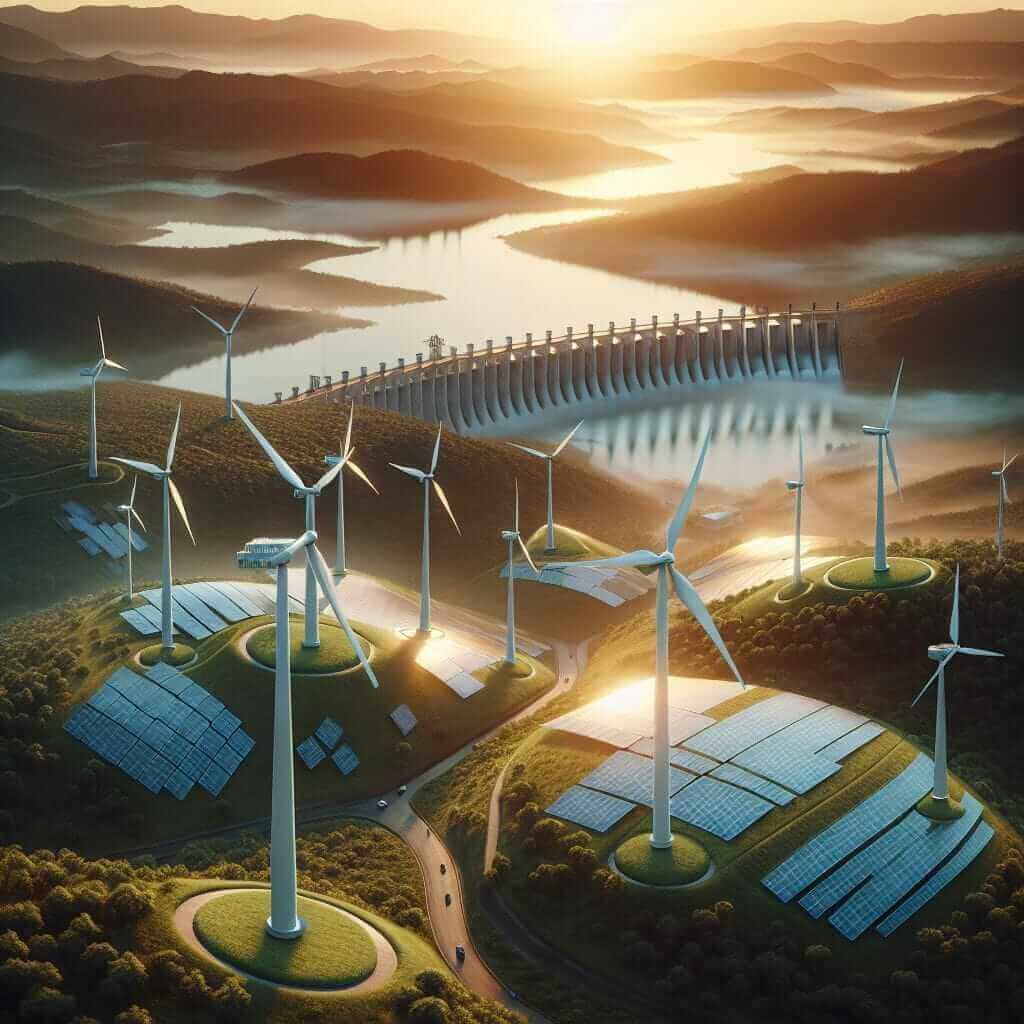The IELTS Reading test is designed to measure a candidate’s reading comprehension skills through a variety of texts and question types. Topics in the test can range widely, including current global issues like renewable energy adoption and its effect on global power structures. This topic has gained traction in IELTS Reading exams due to its relevance and the increasing global focus on sustainable energy practices. Based on past trends, there’s a strong possibility this subject might appear in future exams.
Main Content
Full Reading Passage
Title: The Effects of Renewable Energy Adoption on Global Power Structures
Renewable energy, derived from natural sources such as wind, solar, and hydro power, has significantly transformed global power dynamics. As countries pivot from fossil fuels to more sustainable energy sources, the geopolitical landscape is undergoing profound changes.
Historically, nations rich in oil, coal, and natural gas have wielded considerable global influence due to their control over these finite resources. Countries like the United States, Russia, and those in the Middle East have, for decades, been major players on the world stage because of their energy resources. However, the rise of renewable energy challenges this status quo.
 Renewable Energy vs Fossil Fuels
Renewable Energy vs Fossil Fuels
For instance, solar and wind energy are becoming increasingly cost-effective, thereby reducing dependence on traditional energy-exporting countries. This shift is especially evident in Europe, where the EU has been a frontrunner in adopting renewable energy policies. Germany, for example, has made significant strides in solar power, reducing its reliance on imported fossil fuels.
On the other hand, countries that have not diversified their energy portfolios face potential economic and political instability. As demand for fossil fuels decreases, nations that remain heavily reliant on oil exports may encounter severe economic downturns. This could lead to reduced influence on the global stage and potentially trigger internal and regional conflicts.
Furthermore, renewable energy adoption encourages technological advancements and innovation. Nations investing in renewable technologies are positioning themselves as leaders in the emerging global green economy. China has recognized this potential and invested heavily in renewable energy infrastructure and technology, aiming to dominate the market and influence future global power structures.
Ultimately, the move towards renewable energy not only promotes a sustainable future but also reshapes global power dynamics, creating both challenges and opportunities for countries worldwide.
Questions
Answer the following questions based on the reading passage above.
Multiple Choice
-
What is the primary way renewable energy is changing global power structures?
a) Increasing dependence on fossil fuels.
b) Reducing the influence of traditional energy-exporting countries.
c) Creating conflicts between nations.
d) Increasing prices of renewable energy sources. -
Which country is highlighted as a leader in adopting renewable energy policies in Europe?
a) France
b) The United Kingdom
c) Germany
d) Italy
Identifying Information (True/False/Not Given)
-
Historically, European countries have always been self-sufficient in energy production. (True/False/Not Given)
-
Renewable energy adoption leads exclusively to economic downturns for all countries. (True/False/Not Given)
Summary Completion
Complete the following summary with words from the passage.
Historically, countries rich in (5) resources like oil, coal, and natural gas have had significant global (6). However, the rise of (7) energy is reducing this dependence, as seen in Europe where countries such as (8) lead in renewable energy policies.
Answer Key
Multiple Choice
- b) Reducing the influence of traditional energy-exporting countries.
- c) Germany
Identifying Information
- False
- False
Summary Completion
- fossil fuel
- influence
- renewable
- Germany
Common Mistakes
- Misunderstanding the Impact: Many candidates might mistakenly assume renewable energy adoption only has positive effects without considering the economic and political challenges for traditional energy-exporting nations.
- Vocabulary Misinterpretation: Confusion around terms like “renewable energy” and “traditional energy-exporting countries” can lead to incorrect answers.
Vocabulary
- Geopolitical (adjective) /ˌdʒiː.oʊˈpɒl.ɪ.tɪ.kəl/: Relating to politics, especially international relations, as influenced by geographical factors.
- Pivot (verb) /ˈpɪ.vət/: To turn or rotate, like a hinge; to change direction or focus.
- Cost-effective (adjective) /ˌkɔːst.ɪˈfek.tɪv/: Economical; good value in relation to the amount of money, time, or effort spent.
Grammar Points
- Present Perfect Tense: Used to describe actions that started in the past and continue to the present.
- Example: “Germany has made significant strides in solar power.”
- Comparative Forms: Used to compare differences between two items.
- Example: “Renewable energy technologies are becoming increasingly cost-effective.”
Tips for Improving Reading Scores in IELTS
- Practice Regularly: Consistent practice with a variety of reading passages can improve speed and comprehension.
- Expand Vocabulary: Build a robust vocabulary related to common IELTS topics.
- Skim and Scan: Develop skills to quickly locate information and understand the main ideas.
- Answer Every Question: Even if you’re unsure, it’s better to guess than to leave a question blank.


